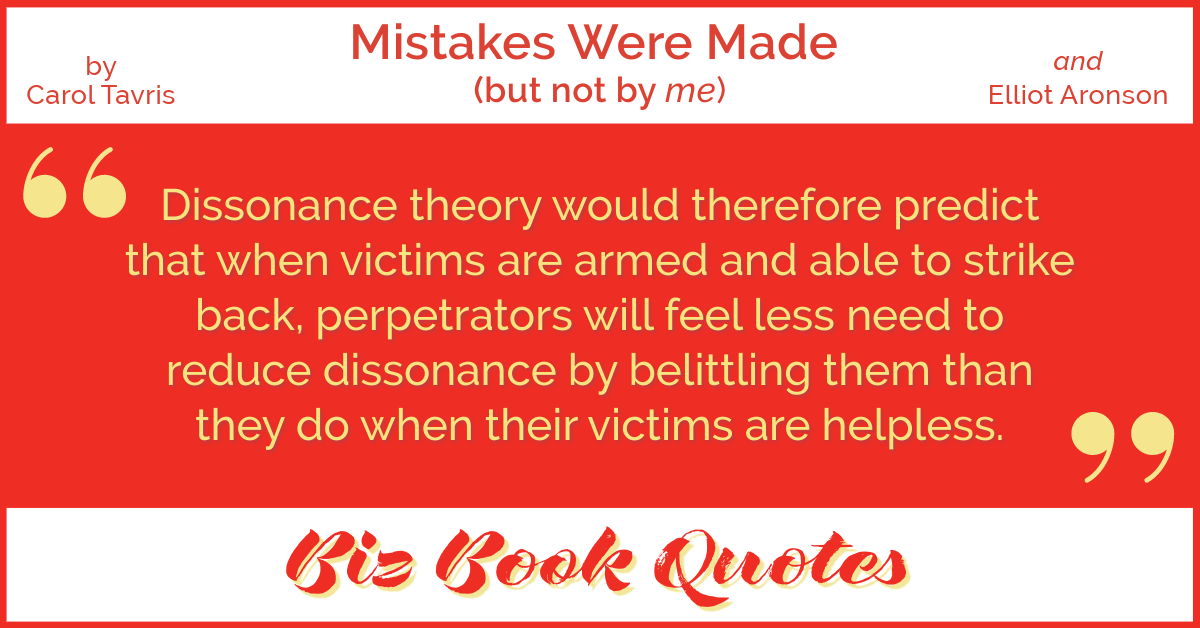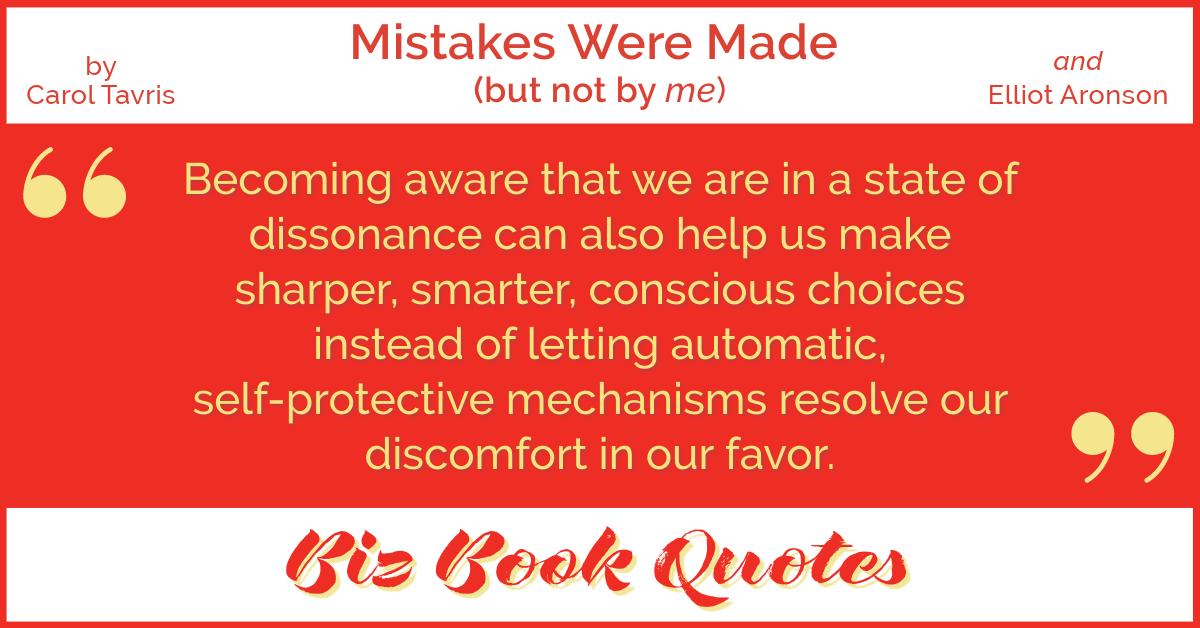 |
To avoid the cognitive dissonance of not liking something that others seem to take so much pleasure in, we slowly change our perception of the thing we once did not enjoy.
|
140 |
 |
The more costly a decision in terms of time, money, effort, or inconvenience and the more irrevocable its consequences, the greater the dissonance and the greater the need to reduce it…
|
032 |
 |
…if you violate your own values, you’ll feel much greater dissonance because, at the end of the day, you have to go on living with yourself.
|
041 |
 |
Once people commit themselves to an opinion… they become less able to accept information that is dissonant with their positions.
|
267 |
 |
The pain of living with horrors we have committed but cannot morally accept is searing, which is why most people will reach for any justification available to assuage the dissonance.
|
268 |
 |
Dissonance theory would therefore predict that when victims are armed and able to strike back, perpetrators will feel less need to reduce dissonance by belittling them than they do when their victims are helpless.
|
271 |
 |
The art of living with dissonance is as much about coping with the scars on the soul as it is about avoiding them.
|
286 |
 |
Once we understand how and when we need to reduce dissonance, we can become more vigilant about the process and often nip it in the bud, catching ourselves before we slide too far down the pyramid.
|
300 |
 |
Becoming aware that we are in a state of dissonance can also help us make sharper, smarter, conscious choices instead of letting automatic, self-protective mechanisms resolve our discomfort in our favor.
|
305 |
 |
Understanding how dissonance operates helps us rethink our own muddles, and it’s also a useful skill for helping friends and relatives get out of theirs.
|
307 |